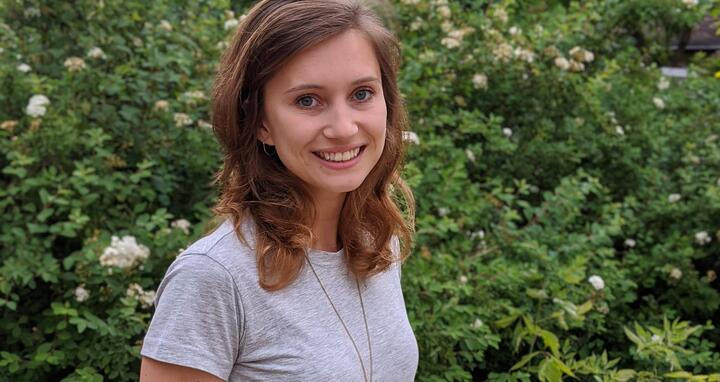What are you reading, Ms Kedziora?
Whether it's an espresso, a cappuccino with a hint of milk, an Americano topped with hot water, a French press, or drip coffee, the variety is endless. The world of coffee preparation is a universe unto itself. And who doesn't know the feeling: no matter which version you prefer, the aroma of freshly brewed coffee rises, warm and full of promise. But then a thought interrupts the moment: just send that email, sort the to-do list, take out the trash – there should be time for all that. Then you can finally enjoy that well-deserved cup of coffee.
But in reality? The coffee is lukewarm, the flavor stale, the moment gone – leaving a bitter aftertaste, in more ways than one.
I’m one of those people who love coffee and, when time allows, like to make a ritual out of it. Before the Coffee Gets Cold by Japanese author Toshikazu Kawaguchi takes this idea as a starting point – and turns it into something quietly profound.
“If you could go back in time, who would you want to meet?”
Most of us have probably wished we could travel back in time – to see someone again, to say something left unsaid, to make a different choice. In a small, unassuming café tucked away in a Tokyo backstreet, Funiculi Funicula, there is a strange and gentle magic: sit in a certain chair, and you can travel back in time – but only for a brief moment.
There are strict rules. And one of them is: you can’t change the present. And yet, change finds a way.
In four interwoven stories – The Lovers, The Husband and Wife, The Sisters, and Mother and Child – Kawaguchi explores what compels his characters to journey into the past, and what they find there. Originally written as a play, it was performed in 2010 and received the Grand Prize at the Suginami Drama Festival.
What makes it special is that everything happens in the café – a place that has existed for over a century. By limiting the setting to this one space and this one chair, Kawaguchi narrows the focus to the relationships between people. The reader never leaves the café, but is nevertheless transported through time.
The minimalist style and quiet tone create a contemplative, almost meditative atmosphere that invites self-reflection. While reading, I often found myself wondering: if I could go back, what moment – and what person – would I choose?
In the end, one question lingers: how long is the moment, really, before the coffee gets cold?
From a scientific point of view, it can be calculated: Assuming an average room temperature of 21°C, a volume of 200 ml, and a starting temperature of 90°C. Other variables – the material of the cup, air circulation, humidity, and not least our own sense of when coffee becomes “cold” (perhaps below 30°C) – also influence the cooling time.
Using Newton’s Law of Cooling, which describes how quickly a body approaches ambient temperature, the time comes out to about 30 to 45 minutes. Perhaps that’s what the book wants to tell us: that we should allow ourselves moments of quiet, take a breath, be mindful, recognize the milestones in our lives – and simply have a cup of coffee. Before it gets cold.
Toshikazu Kawaguchi: Before the Coffee Gets Cold. Pan Macmillan, 2019.
Further reading: Kawaguchi has written several more books in the series: Before We Say Goodbye, Before It's Too Late, and Before the Memories Fade.






